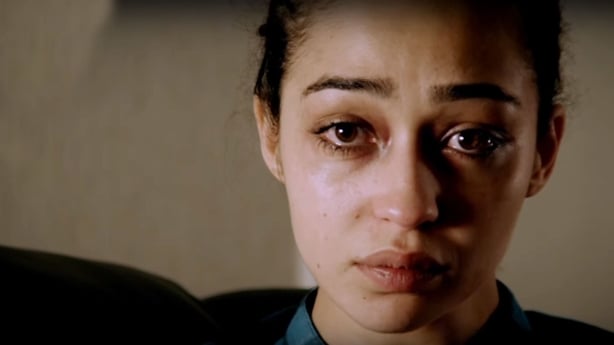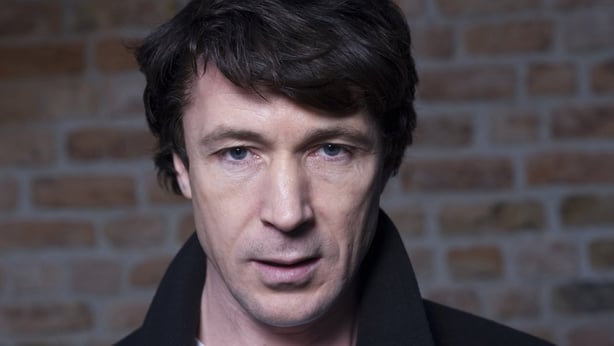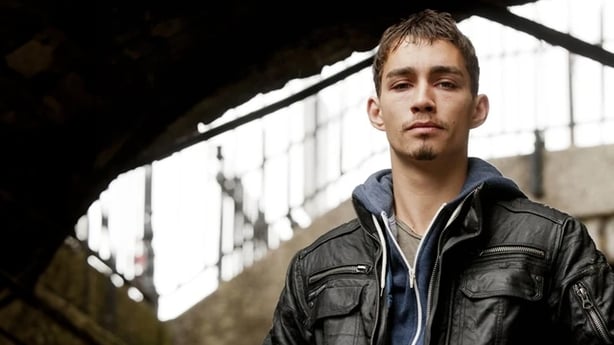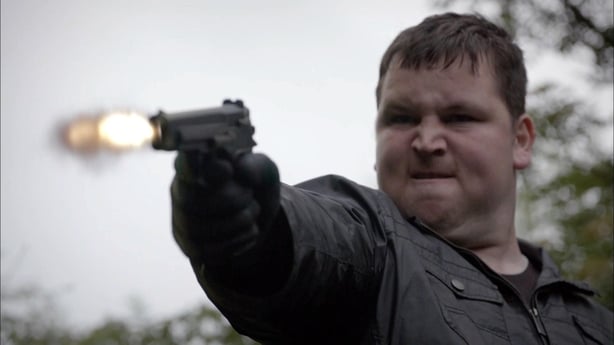It's been fifteen years since characters like Nidge, Fran, John Boy, Trish and Darren became part of the Irish cultural lexicon, and sayings like "I’ve a bone to pick with you, Nidgey" and "Get out of me car ye fat ***bag, or I’ll spraypaint your face with acid" went down as some of the most memorable lines ever committed to Irish celluloid.
In 2010, Love/Hate first graced our television screens, and within the first few minutes of its first episode, set the tone by condemning a newly-introduced character to a grisly end in a drive-by shooting. The tagline read: "Darren Treacy returns to Dublin to celebrate his brother's release from prison, but the killing of one of the members of his old gang has far-reaching consequences..."
In the same episode, we saw Nidge, an up-and-coming gangster, watch a YouTube tutorial on how to use a handgun. This was a far cry from Glenroe - but soon, a new generation of Irish viewers were making sure that they were at home on Sunday nights for the next episode.

Fifteen years after Stuart Carolan’s Dublin-set gangland series revolutionised Irish TV and cemented itself as one of the best series ever made in this country, it’s still drawing in viewers in their droves. It remains the most-watched show on the RTÉ Player today, even though its last episode aired in 2014 - but what is behind Love/Hate’s enduring appeal?
Across its five seasons and 28 episodes, the show won a whopping 19 IFTAs and drew comparisons with the likes of The Sopranos and The Wire. Following Dublin crime kingpin John Boy Power (Aidan Gillen) as he attempts to harness control of his drugs empire as arch-rival Fran (Peter Coonan) elbows in on his turf, it undoubtedly laid the groundwork for the superb Kin, with its often grim yet undeniably compelling portrayal of Irish gangland culture. The brutal murders. The constant double-crossing. The lives that were destroyed by drugs, violence and a bloodthirsty lust for power. Not to mention the poor cat that found itself in the crosshairs of the psychopathic Wayne (a young Barry Keoghan). Pour one out for that unfortunate feline.

While real-life headlines in Irish newspapers about the Kinahan/Hutch feud became increasingly stranger than fiction, Love/Hate offered viewers a glimpse into the human stories behind gangland culture and the criminals involved in it. It also offered a uniquely Irish take on a well-trodden genre: instead of cartoonish tough guys with American accents in New York or Chicago, the exploits of John Boy, Nidge and Fran - and their personal trials and tribulations - made for familiar, if disconcerting viewing.
Love/Hate followed Irish crime families in the same way as Italian TV shows like Gomorrah and Romanzo Criminale (both excellent, by the way) offered insight into the contemporary gang culture in Naples and Rome, or British series like Top Boy provided a glimpse into London’s criminal underbelly. The thrill of seeing recognisable locations and hearing accents familiar to us was undoubtedly a huge part of its appeal.

The show also introduced us to an excellent cast, many of whom were relative newcomers at the time, including Killian Scott (Tommy), Charlie Murphy (Siobhan) and Laurence Kinlan (Elmo). The casting director who spotted the potential in the superb Tom Vaughan-Lawlor for the role of Nidge, meanwhile, deserves a raise. Other big-name actors including the aforementioned Aidan Gillen, Ruth Negga (Rosie) and Robert Sheehan (Darren), found themselves returning to Ireland to partake in the best crime series ever made in this country.
Sheehan admitted in an interview last year that even now - despite starring in huge series like The Umbrella Academy and Misfits - he is still recognised primarily as 'Darren’ on the streets of Dublin. And of course, Barry Keoghan also went on to do a few bits, as the kids put it, with an Oscar nomination and global fame thanks to roles in The Banshees of Inisherin, Saltburn and Dunkirk. To a certain cohort, however, he’ll forever be ‘that lad that shot the cat in Love/Hate’.
Tom Vaughan-Lawlor (aka Nidge from Love/Hate) on RTÉ's Morning Edition in 2014
The stellar cast helped, of course, but perhaps the main reason for Love/Hate’s enduring appeal has been Stuart Carolan’s writing. By and large, these were well-rounded characters and not two-dimensional cliches, as often happens with on-screen portrayals of contemporary gangsters. When you find yourself rooting for a sociopathic character like Nidge, you know the writing must be good.
Crucially, Carolan never glamorised the violence; although the storyline was consistently entertaining, it was an often grim affair. Pool cues took on a new sinister significance. Nor was he afraid of killing off some main players, as we saw several times throughout the five series. Then there was that ending... Brutal in the best sense - but happy endings are overrated, anyway.

The last episode may have wrapped things up neatly (or perhaps left the door open for what happens next…?), and rumours of a sixth series have abounded ever since it wrapped up in 2014. As things stand, there are no plans to return to that world, although Stuart Carolan is reportedly working on a new series described by one source as being "like the bastard lovechild of Love/Hate". There was also talk at one point that an American remake was on the cards. The storyline would certainly hold up, but surely the joy of Love/Hate was in the Irishness of it all: the sharp wit, the local references, the gritty realism of Dublin gangland. Would it work as well in another setting? Who knows. Perhaps it’s time for a rewatch.
Love/Hate is available on the RTÉ Player here
